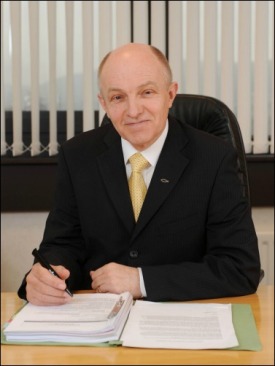Equality for minorities is a core European value
The Council of Europe remains, for many, an organisation which is shrouded in mist and which has discussions and enacts laws “over there” which may have an impact on how we do things “over here”. In fact it was founded in 1949 and now has 47 member states of which 28 are members of the European Union. To date no country has joined the EU that has not first become a member of the Council. More significantly for us, perhaps, is that all Council of Europe member states have signed up to the European Convention on Human Rights, a treaty designed to protect human rights, democracy and the rule of law.
 One of the multi-lateral treaties of the Council, which the UK Government has ratified is the Framework Convention for the Protection of National Minorities. It should be of interest for all of us in this place we call home because it covers ethnic minority communities across the UK such as the Irish, Sikhs, Jews, Gypsies, Travellers and Roma, as well as minority languages such as Irish and Ulster Scots. The convention places an obligation on state parties to promote full and effective equality of persons belonging to named national minorities in all areas of economic, social, political and cultural life, together with the conditions that will allow them to express, preserve and develop their culture and identity.
One of the multi-lateral treaties of the Council, which the UK Government has ratified is the Framework Convention for the Protection of National Minorities. It should be of interest for all of us in this place we call home because it covers ethnic minority communities across the UK such as the Irish, Sikhs, Jews, Gypsies, Travellers and Roma, as well as minority languages such as Irish and Ulster Scots. The convention places an obligation on state parties to promote full and effective equality of persons belonging to named national minorities in all areas of economic, social, political and cultural life, together with the conditions that will allow them to express, preserve and develop their culture and identity.
While not recommending the document as light reading, it does have significance as we watch with interest another set of talks take place in the run up to Christmas. Why so? It is a document built on a series of core principles which may offer an appropriate framework (no pun intended) for our own discussions. Perhaps most germane are the themes of respect, diversity and moving towards a society built on interdependence. It offers some foundational truths on which relationships might develop.
So often in our discussions we see evidence of disrespect, intolerance and party political views held out as the working norms. Just imagine what might happen if we considered how this place might be if we asked ourselves the question “What can I do for the other?” This might be something small, an act of random generosity. Although it is a truism, it is worthwhile reminding ourselves that is upon such small acts that new relationships built upon interdependence might be created. This is something that lies within the gift of all of us, as it doesn’t require us to wait until “they” make the first move. Frameworks might protect, but actions deliver by creating new possibilities to go beyond the legal requirements because we believe that it is the right thing to do for all of us. Embrace the potential.
Posted on 16 Dec 2014 by
Dr Michael Wardlow